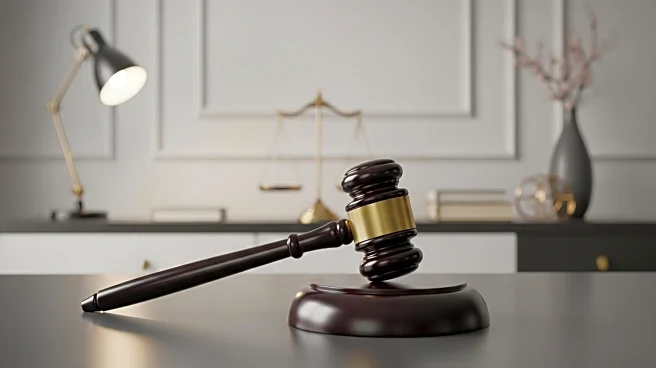What's Happening?
A judge is contemplating sanctions against Department of Justice (DOJ) lawyers due to repeated statements that may have compromised the fairness of the Mangione trial. The trial, which has garnered significant attention, involves allegations that the DOJ's conduct could have influenced the proceedings, raising concerns about the integrity of the judicial process. The judge's consideration of sanctions highlights the seriousness of the issue and the potential impact on the trial's outcome.
Why It's Important?
The potential sanctioning of DOJ lawyers underscores the importance of maintaining fairness and integrity in legal proceedings. If the judge decides to impose sanctions, it could set a precedent for how similar cases are handled in the future, emphasizing the need for government lawyers to adhere strictly to ethical standards. This development could affect public trust in the DOJ and the judicial system, as well as influence ongoing and future cases involving government entities.
What's Next?
The judge's decision on whether to sanction the DOJ lawyers will be closely watched by legal experts and the public. If sanctions are imposed, it may lead to changes in how DOJ lawyers conduct themselves in trials, potentially prompting reviews of past cases for similar issues. The outcome could also influence policy discussions regarding the conduct of government lawyers and the safeguarding of trial fairness.
Beyond the Headlines
This situation raises broader questions about the balance between aggressive legal strategies and ethical conduct in high-stakes trials. It may lead to discussions within the legal community about the pressures faced by government lawyers and the ethical boundaries they must navigate. The case could also prompt a reevaluation of training and oversight mechanisms within the DOJ to prevent similar issues in the future.










